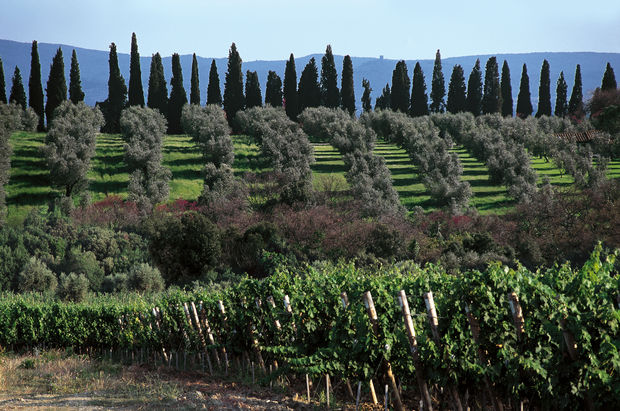
Tuscany: 300 years on and it is still evolving
It has been 300 years since Cosimo III de' Medici first drew up his Bando delineating four wine producing areas in Tuscany and it was through this lens that Liberty Wines hosted the "Beyond the Bando" tasting yesterday in London.
The area and much of Italy, has gone through a major reinvention of sorts over the last 30 years , according to Liberty's managing director, David Gleave.
"I am optimistic about Italian wines. As an Italian specialist, Italy as a category is close to 50% of our sales and is still incredibly important to our business. I am so optimistic because I look at the producers and they are innovative, interested, humble and constantly trying new things and not stuck in rut. They don't say 'we have been doing it this way for 300 years'. They had to re-invent Italian wine in the 1960s and they have succeeded in doing it," said Gleave.
Italian producers have played the leading role in helping to ensure the wines they produce today are relevant to consumers and trade customers.
According to Gleave an improvement to viticulture techniques has exponentially improved the quality of the wines coming out of the area over the past 50 years.
"It is the 300 anniversary at what was the first attempt to define the wine producing areas for Tuscany and all four of the areas are still very important and very vibrant today. That is looking back, but let's look at today at what Tuscany is. To me it is such an exciting area and I have spent a lot of time there over the last 30 years and I have seen lots of changes. Today's Chianti is as good as the super Tuscans were 25 or 30 years ago. The changes that have happened in viticulture have been phenomenal. That is what makes Tuscany so exciting and so diverse," explained Gleave.
Producers have also been willing to experiment with new varieties and take risks, which ultimately helps them learn and discover opportunities.
"If someone wants to plant Chardonnay or Riesling in Bordeaux they can't. If you want to do that in parts of Italy, you can. You can experiment and if it works you sell it. If it doesn't work the market will tell you it isn't sellable. I would hate to see the whole of Chianti planted with Chardonnay- but I do think that producers should be given the opportunity to experiment. If they do, they may learn more about the the varieties that they work with as well ," said Gleave.
While having so many varieties and appellations for so makes Italian wines complex, it also offers infinite potential for consumers to explore.
Gleave said: "Some have said that Italy will never be the next big thing because it is too complex, but once people gravitate towards Italian wines they re drawn in. It is hard to get out again- where do you stop experimenting? Where do you stop discovering? Once people get into Italian wines there is so much there to learn and discover you can't possible get bored."




